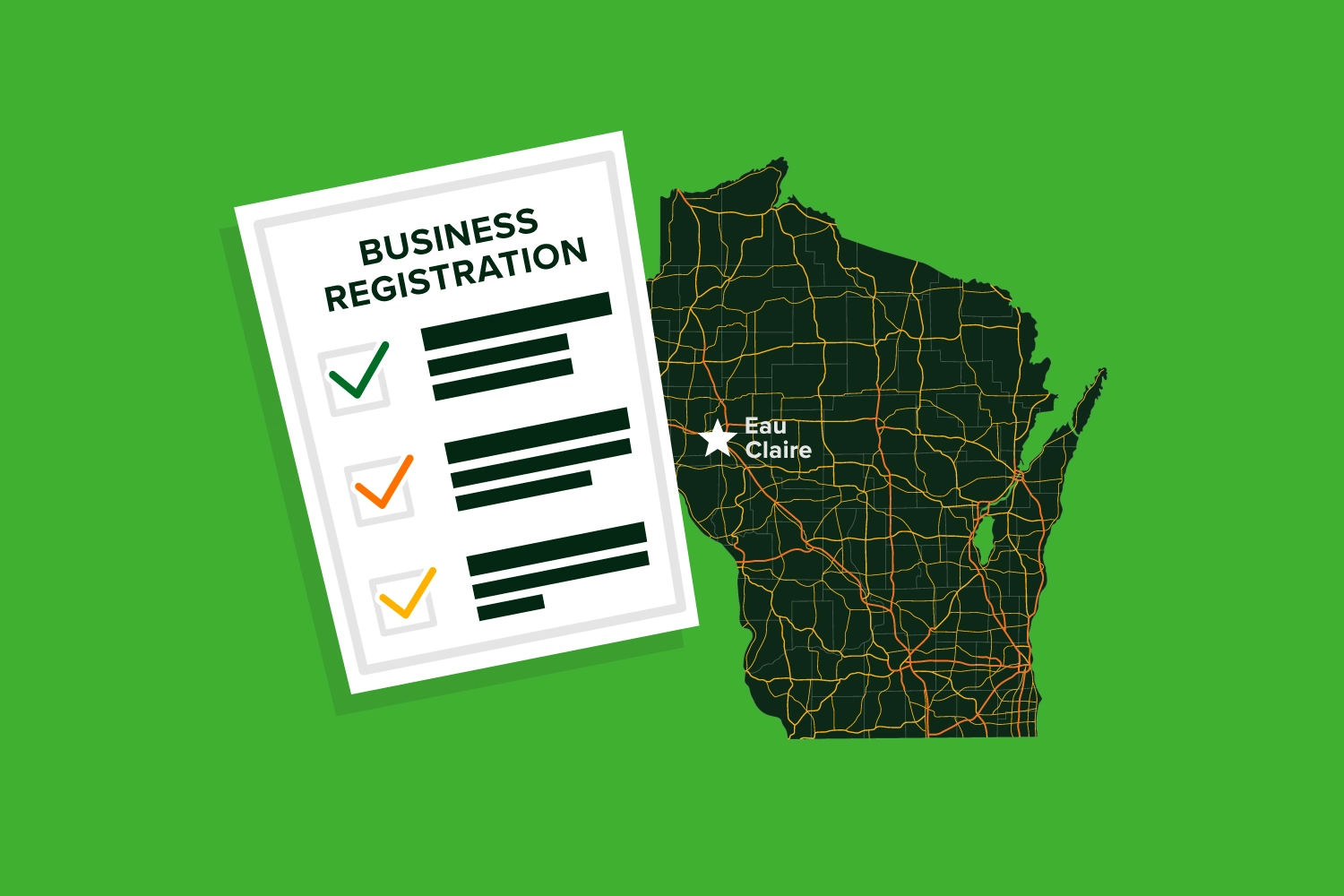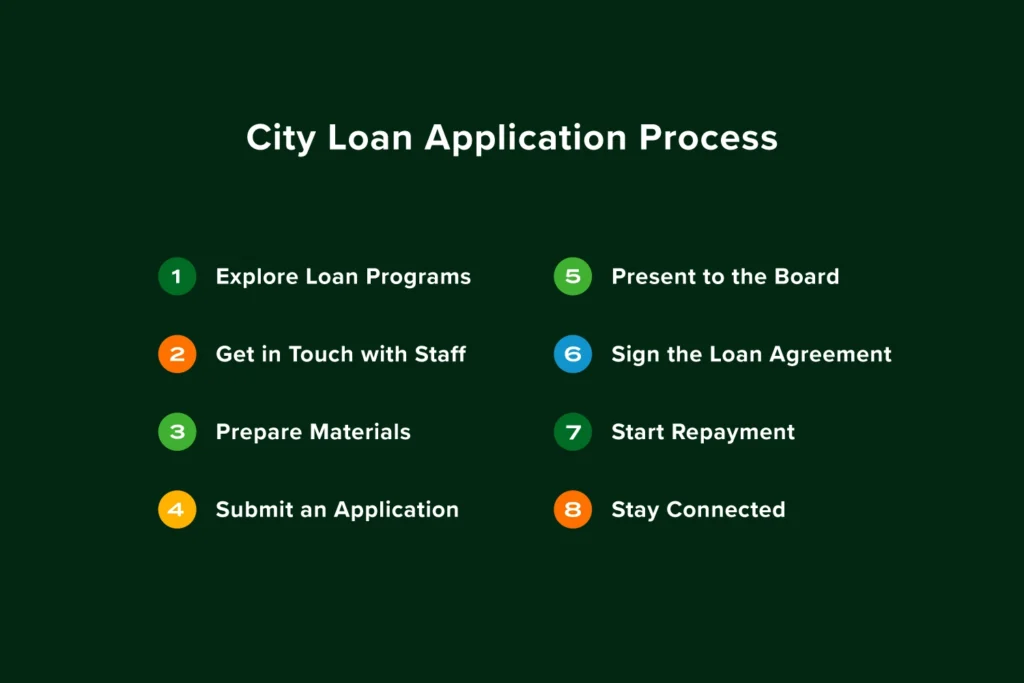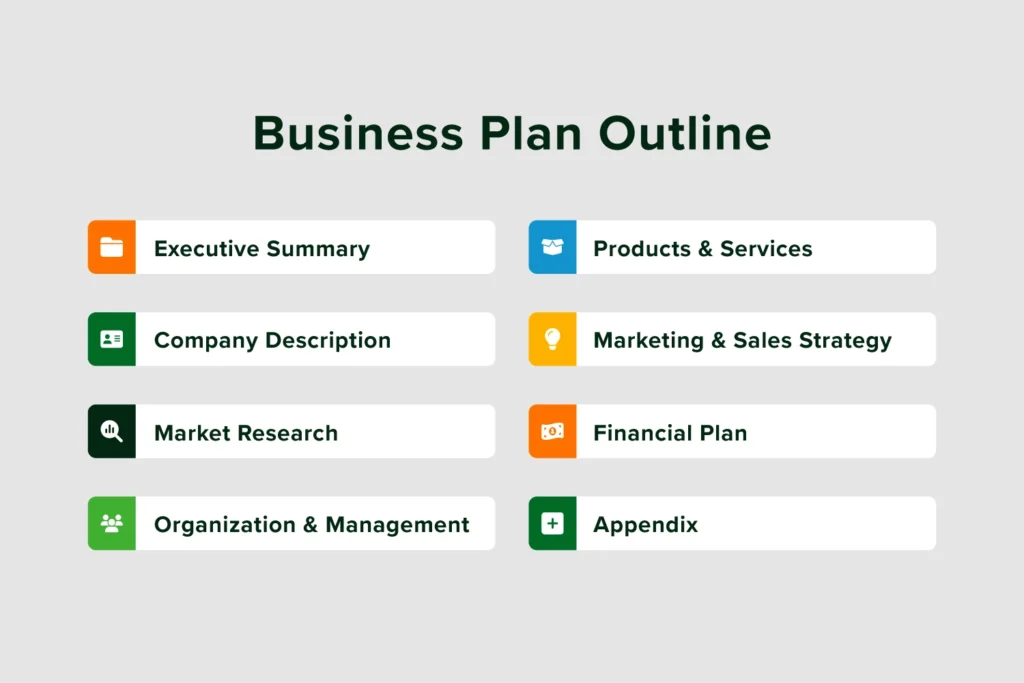Disclaimer: The articles published here on the City of Eau Claire Economic Development Division website are meant to be a helpful starting point as you explore doing business in our community. They’re not the final word on requirements or what’s best for your unique situation. We always recommend checking in with legal, financial, or other professionals for advice tailored to your business.
There’s a lot to look forward to when you’re starting a business in Eau Claire—bringing your ideas to life, shaping your brand, and finally getting things off the ground. Another important part of the process is registering your business with the State of Wisconsin.
Let’s walk through the basics, so you’ll know exactly what to do, when to do it, and where to go if you need help along the way.
Do I Need to Register My Business?
Good question, and this is one that trips up a lot of new entrepreneurs. The short answer is it depends on how your business is set up and what name you’re using. Not every business in Wisconsin is required to register with the state, but most are, especially if you’re doing business under anything other than your own legal name or if you’ve formed a separate legal entity like an LLC or corporation.
Here’s a closer look at what that means:
- Sole proprietorships using only the owner’s legal name (for example, “John Smith Consulting”) may not need to file anything with the state. As long as you’re using your full legal name without any extras, you’re probably good to go.
- But if you’re a sole proprietor or general partnership using a name that doesn’t include the owner’s full name (like “Riverbend Marketing” or “Driftless Goods”), you’ll need to register a Trade Name—also known as a DBA, which stands for “Doing Business As.” This tells the state who’s behind the business name and helps avoid confusion if someone else wants to use something similar. You’ll file that with the Wisconsin Department of Financial Institutions (DFI).
- If you’ve formed a Limited Liability Company (LLC), corporation, or nonprofit, you’re creating a separate legal entity, and that means registration with the DFI is required from the get-go. You’ll also need to choose a name that’s distinguishable from other businesses already registered in Wisconsin and that complies with state naming rules (like including “LLC” or “Inc.” in the name).
Not sure structure fits your business best yet? We broke that down for you in this article. It’ll help you understand the pros, cons, and requirements for each option before you commit.
How Do I Register My Business Name?
Once you’ve picked the perfect name for your business, you’ll need to make it official, and how you do that depends on your business structure.
If you’re forming an LLC, corporation, or nonprofit, your business name will be registered automatically when you file your formation documents with the Wisconsin Department of Financial Institutions (DFI). But before you file, you’ll want to make sure your name is available. The DFI has an online business name search tool that lets you check if your desired name is already in use. If it is, you’ll need to get creative and come up with something unique.
Your business name must also meet state naming requirements—like including “LLC” for a limited liability company or “Inc.” for a corporation—and it can’t be too similar to another registered business name.
If you’re a sole proprietor or general partnership using a name that doesn’t include your full legal name, you’ll need to register a Trade Name, also known as a DBA (“Doing Business As”). This step lets the public and the state know who’s behind the business. You can file your trade name online or by mail through the DFI’s website.
The process is pretty straightforward:
- Cost: Around $15
- Duration: Name registration is valid for 10 years
- Processing Time: Typically a few business days if submitted online
It’s worth taking your time with this step. You’ll be using your business name on everything from marketing materials to tax forms, so make sure it’s both available and a good long-term fit.
🔗 Start Here: Wisconsin Department of Financial Institutions ›
What About Registering for Taxes?
This is a separate (but equally important) step and one you can’t skip. Even if you’ve already registered your business name with the state, you may still need to register with the Wisconsin Department of Revenue (DOR) for tax purposes, depending on what your business does.
Here are a few common situations where tax registration is required:
- Sales Tax: If your business sells taxable products or services, whether that’s retail goods, prepared food, digital products, or certain services, you’ll need to collect and remit sales tax. That means registering for a Seller’s Permit with the DOR.
- Withholding Tax: If you plan to hire employees, you’re required to withhold state income tax from their paychecks. That means registering for a Withholding Tax Account.
- Excise Tax: Some industries like alcohol, tobacco, fuel, and lodging require you to register for excise tax permits as well. If your business falls into one of those categories, be sure to review the specific tax requirements for your industry.
The good news is Wisconsin makes it easy to take care of this online. You can handle all your business tax registrations in one place through the Wisconsin One Stop Business Portal. The system walks you through each step and helps ensure you’re signed up for everything your business needs without having to bounce between multiple websites.
Once you register, be sure to keep your login info handy and stay on top of filing deadlines to avoid penalties. You might also want to loop in a tax professional or accountant early on; they can help make sure you’re meeting all your state and federal tax obligations from the start.
🔗 Start Here: One Stop Business Portal ›
Anything Else I Need to Know?
Yes, don’t overlook local licenses and permits. While the City of Eau Claire doesn’t require a general business license to operate, certain types of businesses will need to get specific approvals or permits before opening their doors.
For example:
- Restaurants and food trucks need health inspections and food service licenses from the Eau Claire City-County Health Department.
- Salons, barbershops, and spas must meet state licensing requirements and may need local building or occupancy permits.
- Childcare centers and preschools have to go through the Wisconsin Department of Children & Families for licensing, in addition to local safety and zoning reviews.
- Contractors, tradespeople, and anyone doing construction work often need building permits, contractor licenses, or registrations through the City of Eau Claire Inspections Division.
- Even home-based businesses may have a few extra boxes to check, especially if you’ll have customers coming to your house, putting up signage, or storing inventory.
It all depends on the type of business you’re running, where it’s located, and how it operates. That’s why it’s a smart idea to double-check before you invest time or money into a space or setup. When in doubt, reach out. The City of Eau Claire Economic Development Division (That’s us!) can help you navigate the process by connecting you with the right City departments.
TL;DR — A Quick Reference Guide
- Choose your business structure. This determines how you’ll register with the state.
- Check your business name. Make sure it’s available and compliant.
- Register with the DFI if you’re forming an LLC, corporation, or using a DBA.
- Register with the DOR for taxes using the Wisconsin One Stop Portal.
- Check local requirements for any licenses or permits specific to your industry.
Need a Hand?
Starting a business has a lot of moving parts, but you don’t have to go it alone. The Eau Claire, Wisconsin community is filled with many partners that are here to help you get set up, stay compliant, and connect with the resources that make starting a business a little less stressful. Reach out to our division today so we can make an introduction for you!
Article Cover Illustration by Freepik





